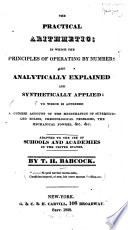 | Arithmetic - 1829 - 196 pages
...divisor is called the RATIO. 276. In geometrical, as in arithmetical progression, them are FIVE THINGS, any three of which being given, the other two may be found. 1st. The FIRST term. 2nd. The LAST term. 3d. The NUMBER of terms. 4th. The RATIO. 5th. The SUM OF ALL... | |
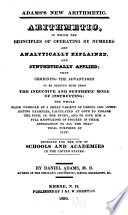 | Daniel Adams - Arithmetic - 1830 - 294 pages
...extremes, and the other terms are called the means. There are five things in arithmetical progression, any three of which being given, the other two may be found : — 1st. Theirs* term. 2d. The last term. 3d. The number of terms. 4th. The common difference. 5th.... | |
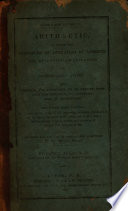 | Daniel Adams - Arithmetic - 1831 - 276 pages
...geometrical series. As in arithmetical, so also in geometrical progression, there are five things, any three of which being given, the other two may be found : — 1st. The/r*< term. 2d. The last term. 3d. The number of terms. 4th. Thereto. 5tn. The sum of... | |
 | Daniel Adams - Arithmetic - 1831 - 276 pages
...extremes, and the other terms are called the means. There are five things in arithmetical progression, any three of which being given, the other two may be found : — 1st. The first term. 2d. The last term. 3d. The number of terms. . 4th. The common difference.... | |
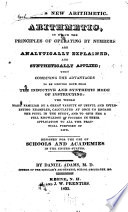 | Daniel Adams - Arithmetic - 1833 - 268 pages
...geometrical series. As in arithmetical, so also in geometrical progression, there are five things, any three of which being given, the other two may be found : — 1st The first term. 2d. The last term. 3d. The number of terms. 4th. The ratio. 5th. The sum... | |
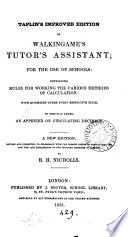 | Francis Walkingame - 1835 - 270 pages
...1,2,3,4,5. ' j,'* 3x2=5+1 or 3x2=2 + 4.' '''' •'«"' ' In this rule, five terms are to be observed, any three of which being given, the other two may be found : viz.. The first term, The last term, The number of terms, The equal difference, and The sum of all... | |
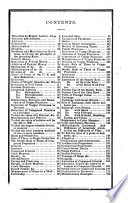 | John Rose - Arithmetic - 1835 - 192 pages
...or divisor, by which the series is founded. In Geometrical Progression there are five denominations, any three of which being given, the other two may be found. 1st. The first term. 2d. The last term. 3d. The number of terms. 4th. The ratio. 5th. The sum of the... | |
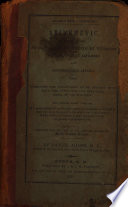 | Daniel Adams - 1839 - 268 pages
...extremes, and the other terms are called the means. There are five things in arithmetical progression, any three of which being given, the other two may be found: — 1st. The first term. 2d. The last term. 3d. The number of terms. 4th. The common difference. 5th.... | |
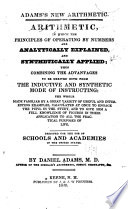 | Daniel Adams - Arithmetic - 1840 - 278 pages
...extremes, and the other terms are called the means. There are five things in arithmetical progression, any three of which being given, the other two may be found: — 1st. Theirs* term. 2d. The last term. 3d. The number of terms. 4th. The common difference. 5th.... | |
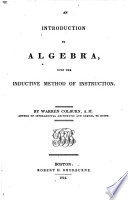 | Warren Colburn - Algebra - 1844 - 280 pages
...3—1 The two equations g , q—l contain all the relations of the five quantities a, /, <j, n, and S ; any three of which being given, the other two may be found. It would however be difficult to find n, without the aid of logarithms, which will be explained hereafter.... | |
| |